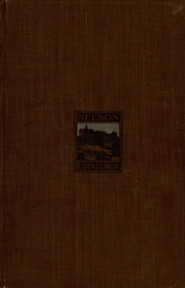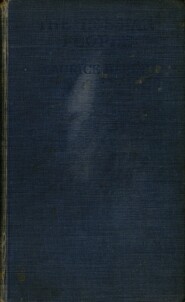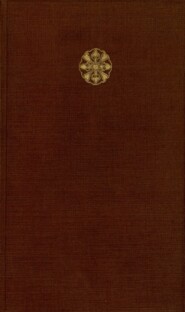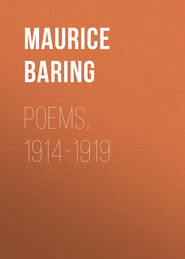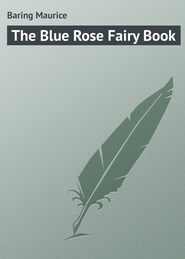По всем вопросам обращайтесь на: info@litportal.ru
(©) 2003-2024.
✖
Overlooked
Настройки чтения
Размер шрифта
Высота строк
Поля
"I believe he was," said Mrs. Knolles.
"Oh, then I suppose he won't go back to Malta," said Kathleen, with perfectly assumed indifference.
"Of course not," said Mrs. Knolles. "He inherits the place, the title, everything. He will be very well off. Would you like to drive to Bavigny this afternoon? Princess Oulchikov can take us in her motor if you would like to go. Arkright is coming."
"I will if you want me to," said Kathleen.
This was one of the remarks that Kathleen often made, which annoyed her aunt, and perhaps justly. Mrs. Knolles was always trying to devise something that would amuse or distract her niece, but whenever she suggested anything to her or arranged any expedition or special treat which she thought might amuse, all the response she met with was a phrase that implied resignation.
"I don't want you to come if you would rather not," she said with beautifully concealed impatience.
"Well, to-day I would rather not," said Kathleen, greatly to her aunt's surprise. It was the first time she had ever made such an answer.
"Aren't you feeling well, darling?" she asked gently.
"Quite well, Aunt Elsie, I promise," Kathleen said smiling, "but I said I would sit and talk to Mr. Asham this afternoon."
Mr. Asham was a blind man who had been ordered to take the waters at Saint-Yves. Kathleen had made friends with him.
"Very well," said Mrs. Knolles, with a sigh. "I must go. The motor will be there. Don't forget we've got people dining with us to-night, and don't wear your grey. It's too shabby." One of Miss Farrel's practices, which irritated her aunt, was to wear her shabbiest clothes on an occasion that called for dress, and to take pains, as it were, not to do herself justice.
Her aunt left her.
Kathleen had made no arrangement with Asham. She had invented the excuse on the spur of the moment, but she knew he would be in the park in the afternoon. She wanted to think. She wanted to be alone. If Lancelot had been in England when Sir James died, then he must have started home at least a fortnight ago, as the news that she had read was ten days old. She had not heard from him for over a month. This meant that his uncle had been ill, he had returned to London, and had experienced a change of fortune without writing her one word.
"All the same," she thought, "it proves nothing."
At that moment a friendly voice called to her.
"What are you doing all by yourself, Kathleen?"
It was her friend, Mrs. Roseleigh. Kathleen had known Eva Roseleigh all her life, although her friend was ten years older than herself and was married. She was staying at Saint-Yves by herself. Her husband was engrossed in other occupations and complications besides those of his business in the city, and of a different nature. Mrs. Roseleigh was one of those women whom her friends talked of with pity, saying "Poor Eva!" But "Poor Eva" had a large income, a comfortable house in Upper Brook Street. She was slight, and elegant; as graceful as a Tanagra figure, fair, delicate-looking, appealing and plaintive to look at, with sympathetic grey eyes. Her husband was a successful man of business, and some people said that the neglect he showed his wife and the publicity of his infidelities was not to be wondered at, considering the contempt with which she treated him. It was more a case of "Poor Charlie," they said, than "Poor Eva."
Kathleen would not have agreed with these opinions. She was never tired of saying that Eva was "wonderful." She was certainly a good friend to Kathleen.
"Sir James Stukely is plead," said Kathleen.
"I saw that in the newspaper some time ago. I thought you knew," said Mrs. Roseleigh.
"It was stupid of me not to know. I read the newspapers so seldom and so badly."
"That means Lancelot will come home."
"He has come home."
"Oh, you know then?"
"Know what?"
"That he is coming here?"
Kathleen blushed crimson. "Coming here! How do you know?"
"I saw his name," said Mrs. Roseleigh, "on the board in the hall of the hotel, and I asked if he had arrived. They told me they were expecting him to-night."
At that moment a tall dark lady, elegant as a figure carved by Jean Goujon, and splendid as a Titian, no longer young, but still more than beautiful, walked past them, talking rather vehemently in Italian to a young man, also an Italian.
"Who is that?" asked Kathleen.
"That," said Mrs. Roseleigh, "is Donna Laura Bartolini. She is still very beautiful, isn't she? The man with her is a diplomat."
"I think," said Kathleen, "she is very striking-looking. But what extraordinary clothes."
"They are specially designed for her."
"Do you know her?"
"A little. She is not at all what she seems to be. She is, at heart, matter-of-fact, and domestic, but she dresses like a Bacchante. She has still many devoted adorers."
"Here?"
"Everywhere. But she worships her husband."
"Is he here?"
"No, but I think he is coming."
"I remember hearing about her a long time ago. I think she was at Cairo once."
"Very likely, Her husband is an archaeologist, a savant."
Was that the woman, thought Kathleen, to whom Lancelot was supposed to have been devoted? If so, it wasn't true. She was sure it wasn't true. Lancelot would never have been attracted by that type of woman, and yet —
"Aunt Elsie has asked a Swede to dinner. Count Tilsit. Do you know him?"
"I was introduced to him yesterday. He admired you."
"Do you like him?"
"I hardly know him. I think he is nice-looking and has good manners and looks like an Englishman."
But Kathleen was no longer listening. She was thinking of Lancelot, of his sudden arrival. What could it mean? Did he know they were here? The last time he had written was a month ago from London. Had she said they were coming here? She thought she had. Perhaps she had not. In any case that would hardly make any difference, as he knew they went abroad every year, knew they went to Saint-Yves most years, and if he didn't know, would surely hear it in London. Yes, he must know. Then it meant either that – or perhaps it meant something quite different. Perhaps the doctor had sent him to Saint-Yves. He had suffered from attacks of Malta fever several times. Saint-Yves was good for malaria. There was a well-known malaria specialist on the medical staff. He might be coming to consult him. What did she want to be the truth? What did she feel? She scarcely knew herself. She felt exhilarated, as if life had suddenly become different, more interesting and strangely irridescent. What would Lancelot be like? Would he be the same? Or would he be someone quite different? She couldn't talk about it, not even to Eva, although Eva had known all about it, and Mrs. Roseleigh with her acute intuition guessed that, and guessed what Kathleen was thinking about, and said nothing that fringed the topic; but what disconcerted Kathleen and gave her a slight quiver of alarm was that she thought she discerned in Eva's voice and manner the faintest note of pity; she experienced an almost imperceptible chill in the temperature; an inkling, the ghost of a warning, as if Eva were thinking. "You mustn't be disappointed if – " Well, she wouldn't be disappointed if. At least nobody should divine her disappointment: not even Eva.
Mrs. Roseleigh guessed that her friend wanted to be alone and left her on some quickly invented pretext. As soon as she was alone Kathleen rose from her seat and went for a walk by herself beyond the park and through the village. Then she came back and played a game with Anikin at the ring board, and at five o'clock she had a talk with Asham to quiet her conscience. She stayed out late, until, in fact, the motor-bus, which met the evening express, arrived from the station at seven o'clock. She watched its arrival from a distance, from the galleries, while she simulated interest in the shop windows. But as the motor-bus was emptied of its passengers, she caught no sight of Lancelot. When the omnibus had gone, and the new arrivals left the scene, she walked into the hall of the hotel, and asked the porter whether many new visitors had arrived.
"Two English gentlemen," he said, "Lord Frumpiest and Sir Lancelot Stukely." She ran upstairs to dress for dinner, and even her Aunt Elsie was satisfied with her appearance that night. She had put on her sea-green tea-gown: a present from Eva, made in Paris.
"I wish you always dressed like that," said Mrs. Knolles, as they walked into the Casino dining-room. "You can't think what a difference it makes. It's so foolish not to make the best of oneself when it needs so very little trouble." But Mrs. Knolles had the untaught and unlearnable gift of looking her best at any season, at any hour. It was, indeed, no trouble to her; but all the trouble in the world could not help others to achieve the effects which seemed to come to her by accident.






